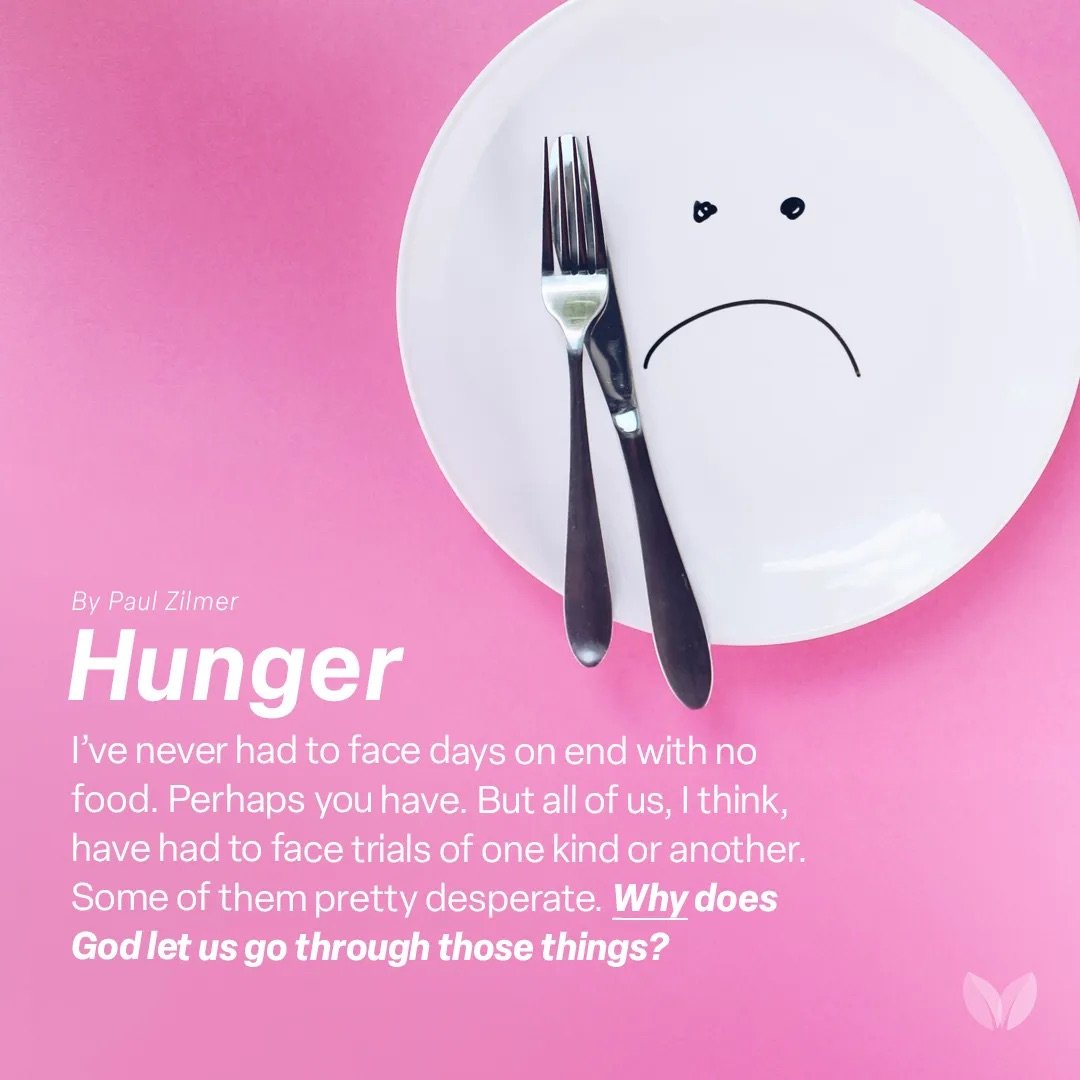Hunger
The Exodus of the people of Israel from Egypt was brought about by astounding miracles, culminating in the crossing of the Red Sea. And then…they did not find water for three days (Exodus 15:22-25). We tend to be a little hard on those people for grumbling about this, but have you ever gone three days with only whatever water you happened to be carrying? In three days, any one of us would be desperate.
When they finally found some water, it was undrinkable—until, by yet another miracle, it was made wholesome. So, very clearly, God could have supplied good water at any time. But He didn’t. He let them get desperately thirsty.
The same thing happened with food. They left Egypt with the unleavened dough they could carry (Ex 12:34 & 39), which they stretched to last a month (Ex 16:1-3). With little, and finally nothing to eat, they complained. God responded by giving them manna. Clearly He could have done this from the outset. But He didn’t. He let them get desperately hungry.
Forty years later, when Israel was about the enter the land God was giving them, Moses addressed the nation in the series of speeches we call Deuteronomy. He explained what was going on back there at the beginning.
And you shall remember the whole way that the LORD your God has led you these forty years in the wilderness, that he might humble you, testing you to know what was in your heart, whether you would keep his commandments or not. And he humbled you and let you hunger and fed you with manna, which you did not know, nor did your fathers know, that he might make you know that man does not live by bread alone, but man lives by every word that comes from the mouth of the LORD. (Deuteronomy 8:2-3)
God let them hunger. Yes, He could have intervened sooner. Why didn’t He? Moses explains that it was to test them. This is an idea that we don’t particularly like, that God would intentionally let us suffer, as a test. In fact, some people completely reject the God of the Bible because they find this idea unacceptable.
No doubt you instantly recognized the last phrase of that Deuteronomy passage. It is quoted by Jesus during his temptations in the wilderness following his baptism. Part of that experience for Jesus was going hungry. What would he do about it? Would he use the power of the Spirit, which had just been given to him, to fill his own stomach? He rejected that temptation, quoting Moses. He understood what Moses was saying, and what his Father was doing. The Father was intentionally letting him hunger, testing His Son. Would Jesus really trust that his life depends not only on food, but just as vitally on every word of God?
The next question obviously is, “Would we?”
I’ve never had to face days on end with no food. Perhaps you have. But all of us, I think, have had to face trials of one kind or another. Some of them pretty desperate. Why does God let us go through those things? We know the answer, don’t we? Even if we don’t like it very much.
Did God love Israel? Yes, as He says many times. Did God love Jesus? Of course He did. Does God love me, does He love you? In His word, He says He does. Intensely. Letting us “hunger”, in whatever form, is part of His love. It’s part of what shapes us, trains us, separates us out of those who reject Him.
What was Israel called upon to do, coming out of that forty year test? “Hear, O Israel: The LORD our God, the LORD is one. You shall love the LORD your God with all your heart and with all your soul and with all your might.” (Deuteronomy 6:4-5) As you know, Jesus says this is the first and greatest commandment. Love the God who has let us “hunger”. Who, by means of all those tests, has made us understand that we need much more than the “bread” of this life.
Love, Paul


